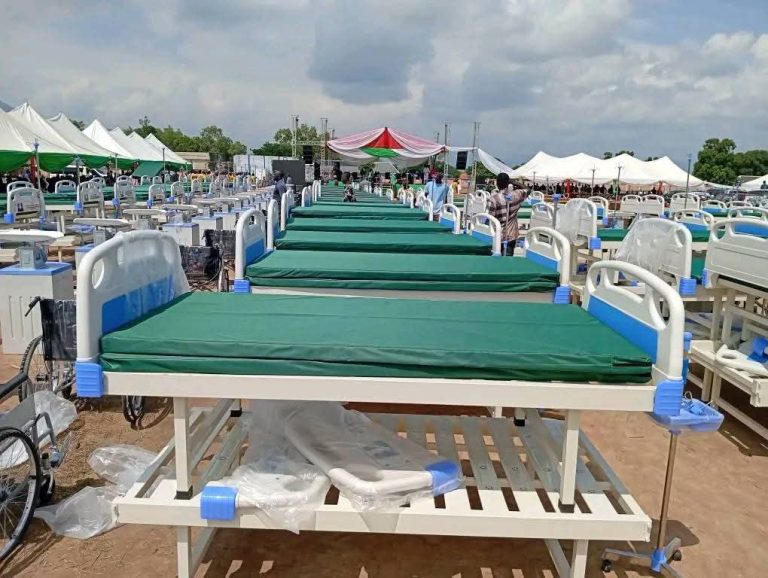The Edo State Government has reaffirmed its commitment to ensuring that all 192 wards across the state have functional and effective Primary Healthcare Centres (PHCs).
Deputy Governor Mr. Dennis Idahosa made the pledge on behalf of Governor Monday Okpebholo during a federal government-backed supervision and inspection of the Oghede PHC in Ovia North-East Local Government Area.
The visit was part of an oversight exercise by the House of Representatives Committee on Healthcare to assess the progress of the Immunization Plus and Malaria Progress by Accelerating Coverage and Transforming Services (IMPACT) Project, jointly supported by the World Bank and the Edo State Government.
Idahosa said the initiative aims to improve access to quality healthcare, particularly in rural communities, while strengthening maternal and child health services.
“The Monday Okpebholo-led administration is determined to deliver on its campaign promises, especially in the healthcare sector.
The Commissioner for Health, Dr. Cyril Oshiomhole, and other agency heads are working together for the good of Edo people,” he said.
The deputy governor expressed satisfaction with the standard of work at the Oghede PHC, describing it as a model for others.
“I am very impressed with what I have seen here today. The prototype is excellent, the health workers are dedicated, and with the team we have in place, Edo people will be happy,” he added.
Idahosa also commended the Chairman of the House Committee on Healthcare, Amos Gwamna Magaji, for his collaboration, noting that Edo’s progress in healthcare delivery was “ahead of the curve nationally.”
Magaji, who previously chaired the same committee when Idahosa served at the National Assembly, described the oversight as “a meeting of fate.” He said the exercise was designed to evaluate how states utilize federal and World Bank funds to strengthen health infrastructure.
“Our mandate is to oversee the Basic Healthcare Provision Fund and ensure states like Edo are well-positioned to achieve universal health coverage by 2030.
Nigeria currently faces one of the highest maternal mortality rates in the world. To reverse this, PHCs must be well-equipped and adequately staffed,” he stated.
The committee chairman commended Edo State’s commitment to healthcare improvement and urged citizens to take advantage of available services in their communities.
Providing further insights, Dr. Cyril Oshiomhole, Edo State Commissioner for Health, said a “Level 2 PHC” includes consulting rooms, a labour ward, an operating theatre, male and female wards, immunization areas, staff quarters, and access to water and electricity.
He disclosed that 61 such centres were under construction across the three senatorial districts — 21 in Edo South, 20 in Edo Central, and 20 in Edo North — and were expected to be completed within two weeks.
Dr. Idemudia Osayomore, Project Manager of the IMPACT initiative, noted that the upgraded PHCs would provide free services to pregnant women, children under five, and adults above 65 years.
“The goal is to reduce maternal and child mortality while improving equitable access to essential healthcare,” he said.
The IMPACT Project, implemented through the Edo Health Insurance Scheme (EDOHIS), aims to expand subsidized healthcare access and accelerate progress toward universal health coverage in the state.


